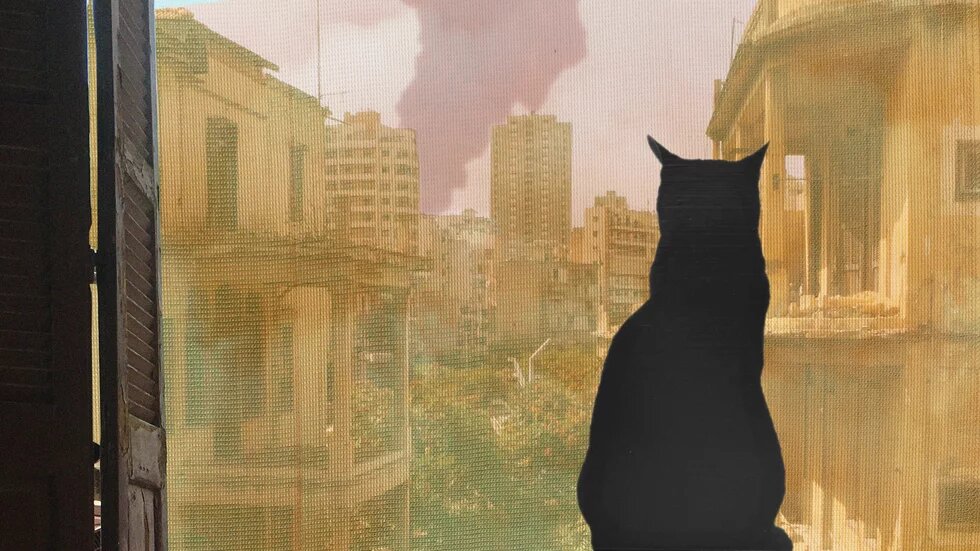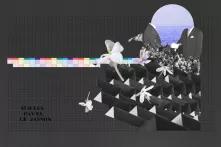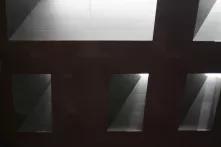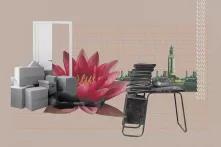“Mid-October, 2019. The mood across the country was like the opening passage to a novel that promises to turn sad. But on the 17th of that month, something unexpected began, setting the course for a very different story” - Abraham Zeitoun remembers.

Chapter 1.
Disappearance of the Cat
In his novel “If Cats Disappeared from the World,” Genki Kawamura recounts the tale of a man who has only months to live, until one day the devil—a more flamboyant version of the protagonist himself—appears with a special offer, one perhaps too good to be true: for every thing the man makes disappear from the world, the devil will grant him one extra day of life.
The exchange seems straightforward at first, until the dying man is coerced into letting go of things he deems essential to the world. Torn between ethical struggles, he faces a fundamental question: what is truly important in life? The depth of a person’s character is revealed most crucially in these moments of immense human failure, when quick decisions must be made on the spot, and when we—the reader—slip into the place of the protagonist and begin to feel alive within the story.
But what if this story was true and the devil was here amongst us, in the midst of our seemingly normal lives? What if the things we hold most precious could be taken away in the blink of an eye, and we are mere characters in a story being written without our consent? What is truly important in life?
Dignity, perhaps. Life itself, at the very least.
What if we had to choose between the two, in a place where neither has managed to reconcile with the other?
What if neither is synonymous with Beirut today, a city that has become a sinister shell of itself, a climate in which life forms must adapt to a harsh new pink and orange cloud drifting on the Mediterranean breeze?
Some might say I am being dramatic. But within the depths of myself, I am convinced that I am—we are—not being as dramatic as we ought to. But processing and understanding trauma is a lengthy process, and in Lebanon, we’re unfortunately burdened with a few too many to handle at once.
One trauma in particular could not have made a more timely appearance. On August 4, 2020, a hangar filled with nearly 3000 tons of ammonium nitrate exploded at the port of Beirut. You’ve probably heard about it on the news, seen images of the pink and orange cloud of smoke, perhaps even taken an interest in what happened and followed up. If you aren’t aware of the incident, I invite you to conduct a little research online to familiarize yourself at a distance.
I am a first-degree witness, and yet I will not tell you what happened that day. There are no words to describe the immensity of human emotions and instincts that erupt excruciatingly from every cell of the body during such a catastrophe.
But I will ask you to consider this event as the beginning of this short story that we will experience together, where you and I are characters in a plot of many twists and turns. To begin, I would ask you to imagine a little grey cat sitting on a windowsill, looking out onto the gardens of an abandoned mid-century building adjacent to yours. The sky is perfectly clear. A tall glass tower is casting a shadow into your room. You are lying in bed, waking from a late nap, gazing at your feline friend as it basks in a ray of sunlight.
The shadow of the tower abruptly moves nearer, and the cat runs and hides somewhere as the floor begins to shake, every unfixed element in the room rattling in tune with an eerie reverberation until the entire building moves and your bedroom collapses in on itself—but rest assured, you are alive.
Your cat, I am afraid, is not so lucky—nor are a few hundred other living beings who have been robbed of life in a matter of seconds.
Finally, I would like you to know that this should not have happened, that it could have been easily avoided; that we know who is responsible, but also that—at the time of writing—no justice has been served.
Chapter 2.
Memories of Dust
Memories are a kind of storage, encoded by our brains and retrieved when needed, and as such may easily influence future action. When memories from our past cannot be remembered, due to unfortunate forgetfulness or amnesia, we are prevented from moving forward.
Memories also form a part of constructs, whether at an individual or collective level. Certain memories are passed on to us and we embrace them as our own, a process that involves building a particular identity around the perception of key aspects of our collective memory. It is a singular way of looking at representations of past events as being associated with values, narratives, and certain biases. It must not be confused with history, which sets itself the goal of providing a comprehensive and accurate portrayal of the past—a task that all too often seems impossible in places where no such work has been achieved with precision.
The problem with memories, however, is that they are transient. They erode with time, are replaced with new memories, or suddenly vanish—even if temporarily—due to something beyond our control, a force majeure. How, then, can we confront the impossibility of memory when such a rupture has occurred? I have no answer for this.
If Beirut were a memory, it would be impossible to dissect it. The city is a fabrication of its past, on loop, the same way many memories are fabricated, passed on to us, and repeated, and are thus unreal in the sense that they are imposters that engulf our psyche. The city makes it difficult to discern what is real from what is imagined, simply because it is perpetually reinvented before our very eyes. Due to these quick and often violent changes in Beirut’s urban fabric and social cohesion, it is difficult to feel anchored, invested, and hopeful in a place where dreams of stability eventually crumble into dust.
Yet that dust is real, and it lingers. We dwell in dust. We see it in the rays of light that penetrate our rooms, or find it gathering in the corners, continually growing from the skin cells that we shed. Even if the city forces us to adapt time and time again, our past selves and our dreams remain there in dust, waiting for the winds of change.
Chapter 3.
A Normal Childhood
I vividly remember the first day I arrived in Lebanon: the smell and sight of overflowing sewage on the main road leading from the airport, the high-rises that dotted every square meter of land across the city. My parents had long been preparing me and my siblings for the big move all the way from Sydney, Australia. But nothing could prepare us for the immense differences we were to be faced with.
We were like aliens that had landed in a foreign place that was somehow familiar, but with thousands of first impressions to be made. We knew, even as children, that we had arrived in the Third World. We knew we would face cultural differences, language barriers, everyday challenges, and numerous other obstacles. It was initially very difficult to fit in as an Australian kid with Lebanese heritage. I spoke no Arabic, my name was Abraham, and I had no idea that the country had only recently come out of a long war. I was outgoing and yet very shy. I didn’t feel I had the right to belong.
But life in 1990s Lebanon provided a richness I can never deny. Growing up there brought the possibility of living alongside so many other young people my age in similar situations to mine, all of us born abroad and suddenly finding ourselves in a new country we were to call home. We spoke different languages and learned about the cities and countries everyone had come from. Most of us felt displaced and yearned to go back, but we had powerful connections with one another that made the city feel like home. Slowly but surely, many of us learned to fit in and grew to understand and love Beirut. We appreciated that the country gave us things we might not find elsewhere. And, of course, we were often made to believe that we were participating in the post-war rejuvenation of the country, and there was some truth to this.
One decade later, a period with numerous setbacks in the development of the country, my early adulthood was when I really built an attachment to the city. First love. First heartbreak. Discovering new parts of the city, taking road trips across the country, reading history books, poetry, and literature about and from Lebanon. Meeting new people, learning to navigate fully on my own and remembering streets and neighborhoods, smells, and colors from a place of instinct.
Today, my memories of the formative years I spent in Lebanon no longer make sense to me. Those days seem part of a distant past that is almost not my own. The city that was once our playground has become much more hostile. The joie de vivre and resilience that Lebanese people pride themselves on have slowly been tarnished over the last two decades due to an extreme form of capitalism, rampant corruption, and bubbling sectarian strife, leaving visible impacts on how the country looks, feels, and is lived today. Landmarks have changed; places I frequented again and again have realigned themselves to the changing contexts until they are hardly recognizable, or they have simply been erased. Most of my friends have left for the same reasons so many are always leaving Lebanon, searching for a place to call home, somewhere to live a safe, prosperous, and somewhat normal life. I feel once more like an eight-year-old boy in an orphan city.
I don’t plan on having children, but I can safely say that if I did, I would not think twice about raising them in the Lebanon of the 1990s. I cannot say the same for the Lebanon of today. But for many, it is not so much a question of desire or choice but of reality: we do what we can with what we have.
Chapter 4.
My Local Deities Are Better Than Yours
Mid-October, 2019. The mood across the country was like the opening passage to a novel that promises to turn sad. But on the 17th of that month, something unexpected began, setting the course for a very different story.
On that day, people from all corners of Lebanon descended into the streets with an anger that had been simmering for quite some time, all of them demanding some form of change. For many, this meant a complete overhaul of the factional and corrupt system governing the country. Over the next few months, the mass protests and actions across the sociopolitical spectrum first left us dumbfounded, then sparked a new hope and determination that we thought we had lost. In the outpouring of the masses into the streets and plazas of towns across the nation, different economic, confessional, and social backgrounds seemed to converge into one. We were demanding change across the board: recognition of our rights as equal citizens in a fair state, true sovereignty, economic prosperity, and a right to dignity. We thought we would finally be able to exist as individuals, regardless of our affiliations—whether consciously or by force—with any particular sect.
The uprising that was triggered on October 17, 2019 had been in the making for a number of years. It was preceded by various contestation movements, centered for the most part around the capital city, though never at the scale of what was to come. This new confidence was beautiful, energetic, and engaging. Group discussions took place, people overtook public spaces, and many of us felt as though our cities and towns truly belonged to us—to all of us. We were to become the makers of our own destiny, one in which the traditional parties would have no influence, and in which the perpetrators of corruption and state violence would be prosecuted. I have always had difficulty calling it a revolution. The use of the word made me feel uneasy in those early days, and I still cringe today when I hear the word used lightly. To me, the unnamed has greater power and greater agency than the named. The unnamed forces us to question it along the way, demanding that we consciously own it to be able to take it where we’d like, for as long as we’d like.
But the uprising soon lost strength, faced as it was with a plethora of setbacks. The Covid-19 pandemic ultimately brought things to a halt, but the violent tactics of the ruling elite and their network of patrons had already deeply impacted the stamina of the movement well before the start of the pandemic. It had become clear early on that with those in power, specifically Hezbollah, only a skewed notion of dignity would be possible for us, and the pursuit of any other form would be a taxing undertaking involving violence, injustice, and human degradation. The spoon-fed form of dignity we have been promised does not arise from our own agency in pursuit of collective well-being. It is a particular understanding of the concept, shared by a number of countries across the region, that involves submission to god (and hence god’s patrons on earth; in Lebanon’s case, both the clergy and political class), following strict moral codes, and belonging to a group by force, with no possibility of existing without it.
Regardless of where we are with the uprising today, both the formal and informal states that make up the country of Lebanon and their various proxies still rule with an iron fist and have managed to instill new forms of fear, maintaining the status quo as it has been for decades. There are still many who consider their clan chiefs to be local deities, to be worshipped with the same status as any revered god or goddess throughout history. Belonging to a clan or community or revering a powerful individual is not a problem in itself, but the impossibility of leading a life without such allegiances is grossly problematic to say the least, and the impossibility of prosecuting a god worshipped by his or her masses has ultimately endorsed an extreme form of injustice as the norm. We have very little agency, or none at all, because we have either been stripped of such a right, held as it is by our local deities, or because we have submitted ourselves to them and continue to do so even after they have taken all of what is most precious in life, and life itself.
But the country has ultimately changed, and whether we the people—or they, the ruling class—like it or not, the Lebanon of yesterday is long gone and cannot return. It is simply impossible for the country to withstand the numerous crises it has been facing, and this just might force those in power to bend to the pressure being exerted on the streets and on an international level. It is my conviction that justice will one day prevail, although it will most likely be a partial justice. Nevertheless, we shall see better days.
Chapter 5.
A Declaration of Heresy
There are certain words that come to mind when I think of Lebanese leaders, their families, and their networks of patrons. Most of these words could put me in prison if targeted at a certain powerful individual in an “irresponsible manner.” But more interestingly, these words and slogans were and still are chanted on the streets of Lebanon, and have been tagged across the country’s walls and billboards in creative new ways since the October 2019 uprising. These forbidden but crucial words have found their way into the mass media, television especially, but have always been shot down as flagrant heresy that imperils the fragile socioreligious balance and assails the integrity and authority of the state.
The Lebanese are too prudish in public. We are to follow certain etiquette, even in times of distress and in the midst of a public uproaring when the country is literally in flames. Don’t say this; don’t do that. The impossible is almost never made possible because we are always forced to chasten or moderate our anger and desires. We often find ourselves in danger simply for verbalizing the same thoughts that the vast majority also feel. We have put thoughts into words, without turning those same words into action, and yet the expression of such thoughts is already threatening enough that the state’s tools of oppression are deployed. One word can make the state crumble.
I am proud to state that I am a heretic; that is to say, I indulge in heresy. It is in heresy that I am able to construct and utilize my preferred modes of expression. These words are how I dive into a state of being that is other, alongside compatriots who share the same ideals and who fight to find a place of true belonging in a country so rich and unique but that has been robbed of this truth by those who hold onto power:
I spit on your tombs and desecrate your idols. I may not have superpowers, but the depths of me contain a thousand fires that I wish could be sent to your private homes, the same way you and your families have destroyed homes and lives while you continue living lavishly, with not a shred of remorse nor a single move to end the suffering you have caused your “own people.” We are not your subjects, and we wash ourselves clean of your names.
These are things I cannot say lightly, because they are considered morally reprehensible in the Lebanon we live in today. But there will be others who wield these words, and I salute them.
__________________________________________________________________________
Author: Abraham Zeitoun (born 1989 in Sydney, Australia) is a Lebanese-Australian graphic designer, collage artist and communications expert. He graduated from the American University of Beirut in 2013 with an M1 in architecture and Minor in fine arts. Zeitoun’s line of work has granted him access to numerous ongoing design and communication collaborations and a diverse range of projects ranging from the performing arts and the independent art scene to institutional presence and branding. His personal work has been featured in a number of different publications, magazines, and websites. He today resides between Beirut and Paris.
Curation: Sandra Hetzl (* 1980 in Munich) translates literary texts from Arabic, among others by Rasha Abbas, Mohammad Al Attar, Kadhem Khanjar, Bushra al-Maktari, Aref Hamza, Aboud Saeed, Assaf Alassaf and Raif Badawi, and sometimes she writes too. She holds a Masters in Visual Culture Studies from the University of the Arts in Berlin, is the founder of the literary collective 10/11 for contemporary Arabic literature and the mini literature festival Downtown Spandau Medina .
__________________________________________________________________________________
This essay is part of our series "Reminiscence of the future". To commemorate ten years of revolution in North Africa and West Asia, the authors share their hopes, dreams, questions and doubts. The essays indicate how important such personal engagement is in developing political alternatives and what has been achieved despite the violent setbacks.
In addition to the series we also address the ongoing struggle against authoritarian regimes, for human dignity and political reforms in various multimedia projects: For example, our digital scroll story "Giving up has no future" presents three activists from Egypt, Tunisia and Syria who show that the revolutions are going on.


